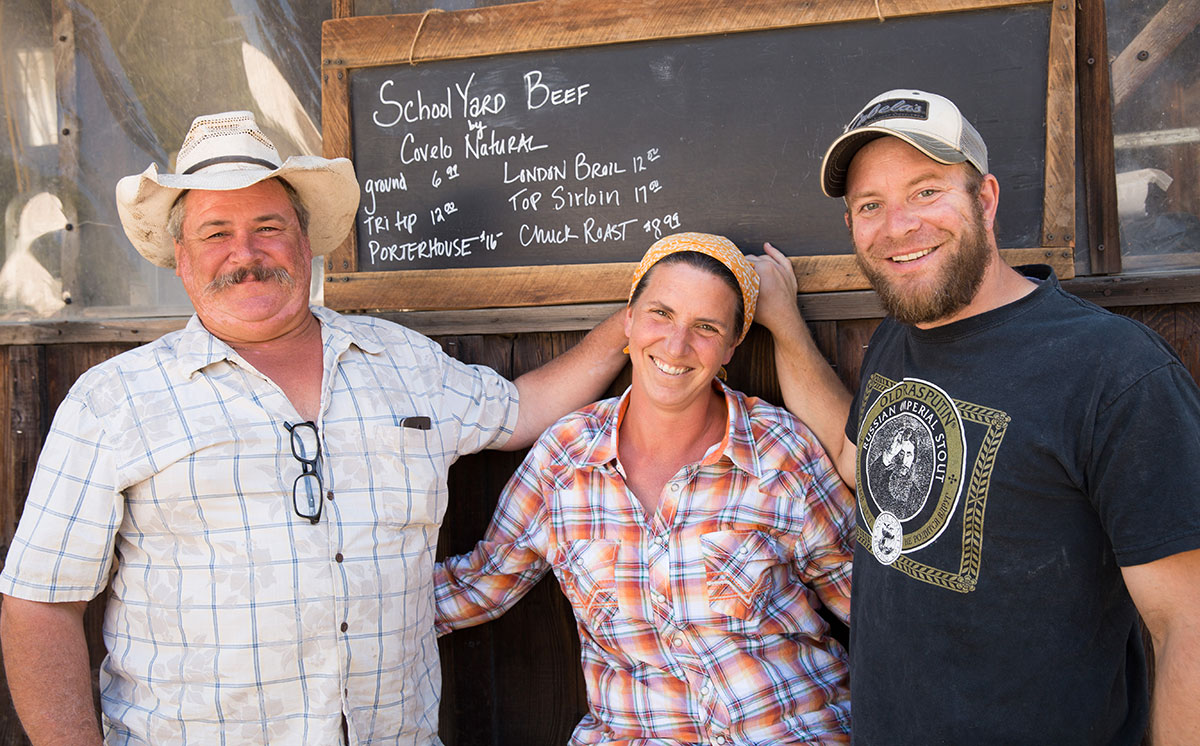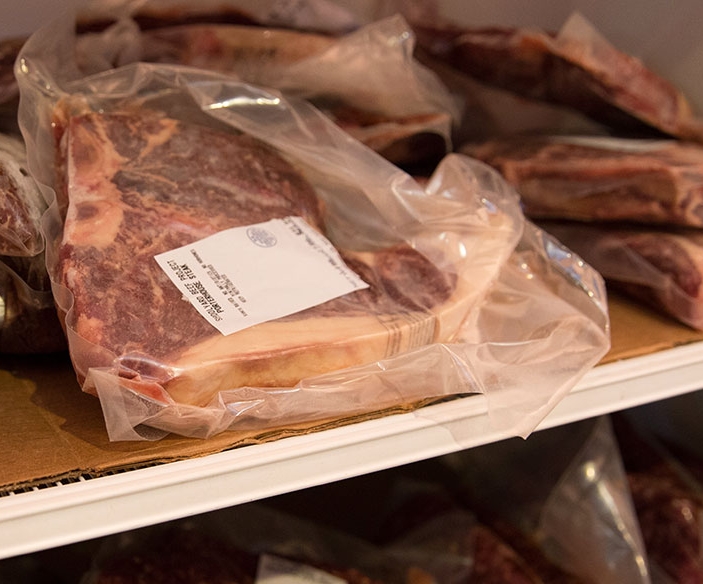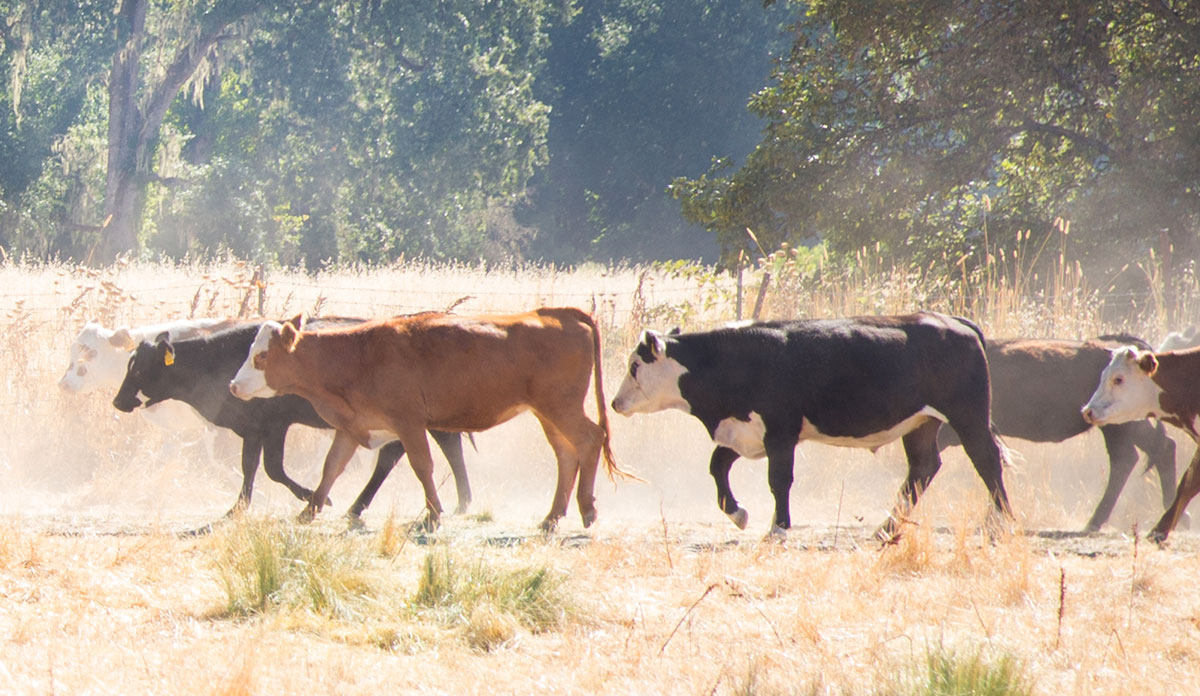Cows for Kids Laytonville’s Schoolyard Beef Project

story & photos by Ree Slocum
About ten years ago, the owners of the Big Chief— Matt Paridis, Clay Carpenter, and Troy Terrill—turned a yearly party into The Crawfish Boil Fundraiser. They had turned their annual gathering into a community party to raise funds for local nonprofit programs in Laytonville. Matt was working as the “Lunch Lady” at the Laytonville School at the time and saw a need to introduce higher quality food to the children. Through the fundraiser, the school became one of the recipients.
Funding raised over the first few years helped pay for two greenhouses, located on the school grounds, which grow salad greens and other produce both for the school and for sale. Around four years ago, Meadow, owner of Long Valley Feed, and her husband, Paolo Shere, came to the same conclusion along with Matt and Clay. “We live in cattle country. Why are we serving low quality, commodity beef to our children?” There had to be a way to get high quality local beef onto the children’s lunch plates at a decent price.
With seed money from the Crawfish Boil, they put together a unique program called School Yard Beef. Little did the group know that the program would take them to many businesses owned by like-minded people who wanted tohelp by donating their time and energy.
Laytonville School System loved the idea. They had greenhouses to produce high quality veggies for the students. By adding locally produced beef to the menu, they could improve both nutrition and flavor and give the kids a better food experience. With education and taste testing, the children bought into the grass fed beef idea. But there was always the concern that the beef would be too expensive.
Despite that concern, the next steps fell into place. Cattleman and butcher Tim Hurt, owner of Covelo Beef, generously offered to sell his beef to the program at a highly discounted rate. Tim has an excellent reputation as a cattleman and runs herds in Covelo, Laytonville, and on the coast. His beef is grass fed with no antibiotics or hormones. “I wanted to provide healthy food for the kids,” he said. “I’ve worked in the big slaughterhouses in the 80s, and food that goes to the general public isn’t as safe as the food I produce. I just don’t like the quality. It’s not what I want my kids to eat. That’s why I started the whole Covelo Natural program— because I wanted a safer, healthier supply of beef and pork for my family.”
Tim and sometimes Paolo trailer the cattle to the closest USDA-certified slaughterhouse in Humboldt County’s town of Eureka. The slaughterhouse doesn’t give a discount but they do transport the carcasses at no extra cost to the packing houses. From there the meat goes to Roundman’s Smoke House in Fort Bragg where, on his own time, Tim cuts and packages the beef into prime cuts and hamburger. Roundman doesn’t charge Tim for using the facilities, which results in significant savings. On the trip home to Covelo, Tim drops off the packaged beef at Meadow’s Long Valley Feed Store, where it’s frozen and stored. Meadow then sells the prime cuts, some of the hamburger, and stew meat to the public at market prices, both from the feed store and at the Laytonville Farmer’s Market. Most of the hamburger and stew meat is set aside for the School Yard Beef program, which is sold to the school at a generous discount.
The program started with one steer and has increased to about five per year. Money raised by selling the meat allows the program to purchase its next steers. After three years, the School Yard Beef Program has become self-sustaining and has started to make a small profit. Community members are invited to volunteer and reap the benefits of providing high quality beef to children in Laytonville’s schools.
The School Yard Beef Program is a creative and ingenious program peopled by caring individuals and businesses. It not only increases access to delicious, local, grass fed beef to children, it’s also helping improve the local economy.
To learn more or to volunteer, contact Meadow at (707) 984-6711.



